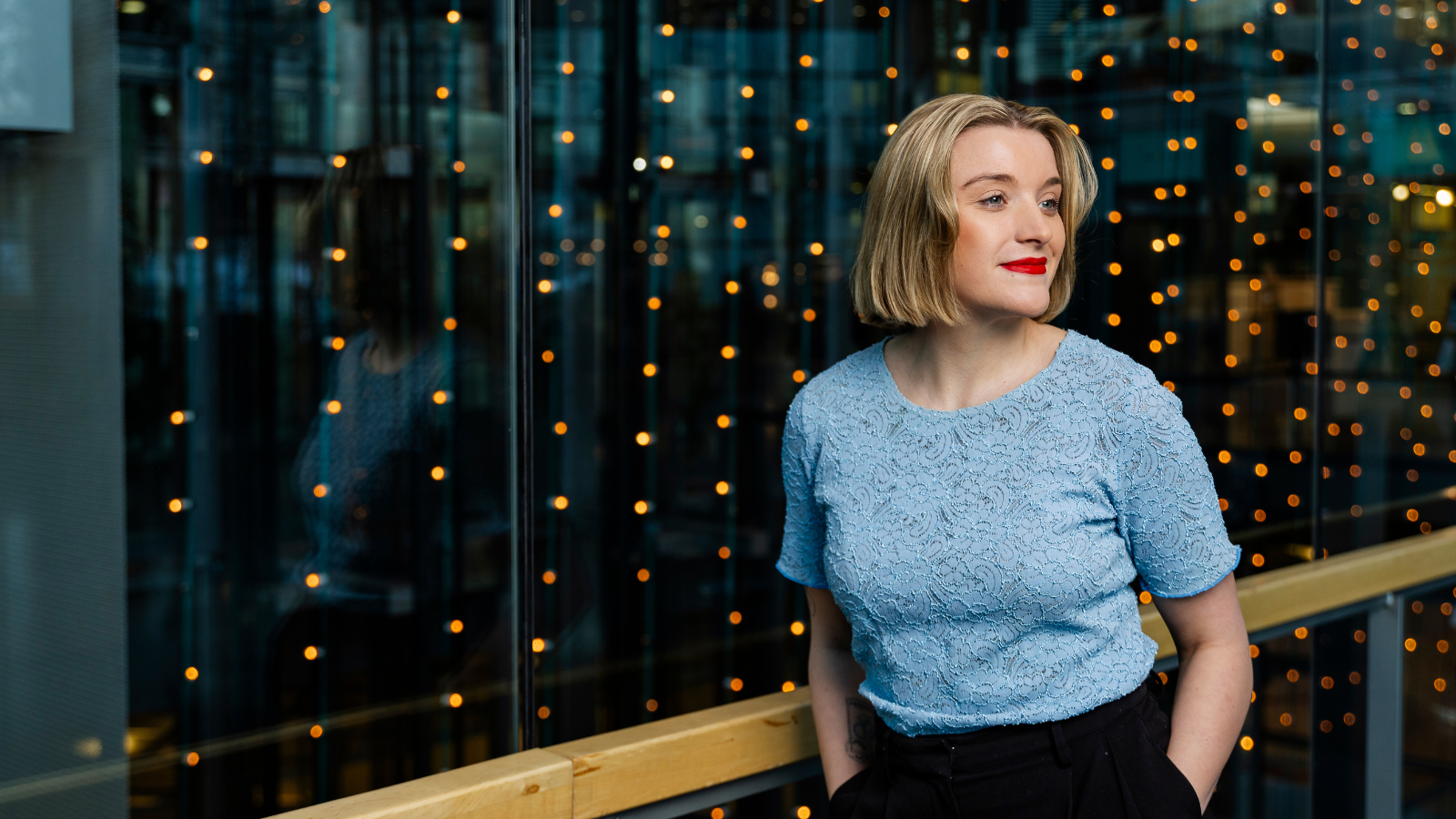Last week my colleague Fatu and I had the opportunity to take part in the event 48 Hours for Democracy, which was organised in Brussels by the European Movement International. The aim of the intensive two-day session was to come up with new ideas on how to improve European democracy and the EU. The concept for the event relied almost completely on cooperation and coming up with ideas, so we did not expect dry lectures or gloomy seminars.
The participants had been divided into groups ahead of time, and each group was given a task centred around a single word. My group was given the word movement, while Fatu’s group got inspire. The other groups were given the words learn, teach, support, dream, act, share, play and fight. Our first task was simply to meet as a group and discuss the different phenomena and ideas that the word brought to mind. I was joined in my group by people from six other European countries, which had made me quite nervous ahead of time.
Luckily, I soon realised that there was no need to feel nervous. Our group enthusiastically discussed the movement of ideas, thoughts and people in a very wide sense, then moved on to how we could strengthen the European identity and change attitudes. Several times during our discussion I found myself wondering how for example the Spanish, the Greeks or the Italians can have such similar ideas on what it means to be European as we do here in the north. We were representing different peoples and national states with different backgrounds, but we all had a shared desire to take Europe forward and to improve the European Union so that its citizens would have more genuine opportunities to influence and participate.
Neither the organisers nor the participants would have been satisfied with an event made up of just pleasant chit-chat, so as well as discussing our topics we were asked to come up with concrete suggestions on how to improve our particular topic within the EU. We also visited the other groups to hear about their ideas and to develop them further. All eleven groups came up with great ideas on how to bring the EU closer to its citizens, how to improve the cooperation of national states across borders, how to create a feeling of European solidarity, and so on.
On the second day of the event we continued to refine our ideas and make them more concrete, and we also prepared a seven-minute pitch that we would present to the other groups. Prizes were given for the best ideas. According to the jury, the best ideas were two projects: one called Power to Women, which aimed at increasing women’s participation in decision making, and a project aiming to found democracy festivals in different parts of Europe. The inspiration for the second idea came from Almedalsveckan in Sweden and SuomiAreena in Finland. In many European countries, it is unheard of that politics would spread out among the citizens and that non-governmental organisations can take part in the debate in a joint public event.
While writing this at Brussels Zaventem Airport, I am thinking about what I have taken away from the event. In addition to all the interesting ideas and inspiring meetings, Fatu and I also got many viable ideas that we can use in our other work at SYL, starting with our communication campaigns. However, my most important takeaway was that for two days, I had the opportunity to focus on the big picture and the European framework, i.e. how we can all do our bit to make the EU work better and help us EU citizens feel like it is our union. The student movement needs to be an active party in developing Europe and the EU, as decisions made now on the future of the EU will have a direct impact on university students and young graduates who have their whole futures ahead of them.
In the week after the event, my thoughts still return to the first evening of #48hdemocracy and our journey to the hotel. On our way back, we passed a homeless family that I will not forget easily. On my travels I have seen a lot of homelessness and misery, but this case really stood out. On the ground between the two adults, there was a small child sleeping in a sleeping bag. The empty stroller was leaning against the wall next to the sleeping shapes, and there was this family of three, protected only by their sleeping bags and a couple of pieces of cardboard. Poverty and inequality have a strong presence even in the EU capital of Brussels.
We cannot close our eyes to poverty, which is also widespread in the EU. We have the responsibility to improve the union so that it is possible for everyone to lead a safe and good life. Europe and the EU are certainly not finished products. That is why sharing experiences, learning from each other and cooperation is required.
Eero Manninen
SYL’s Secretary General




